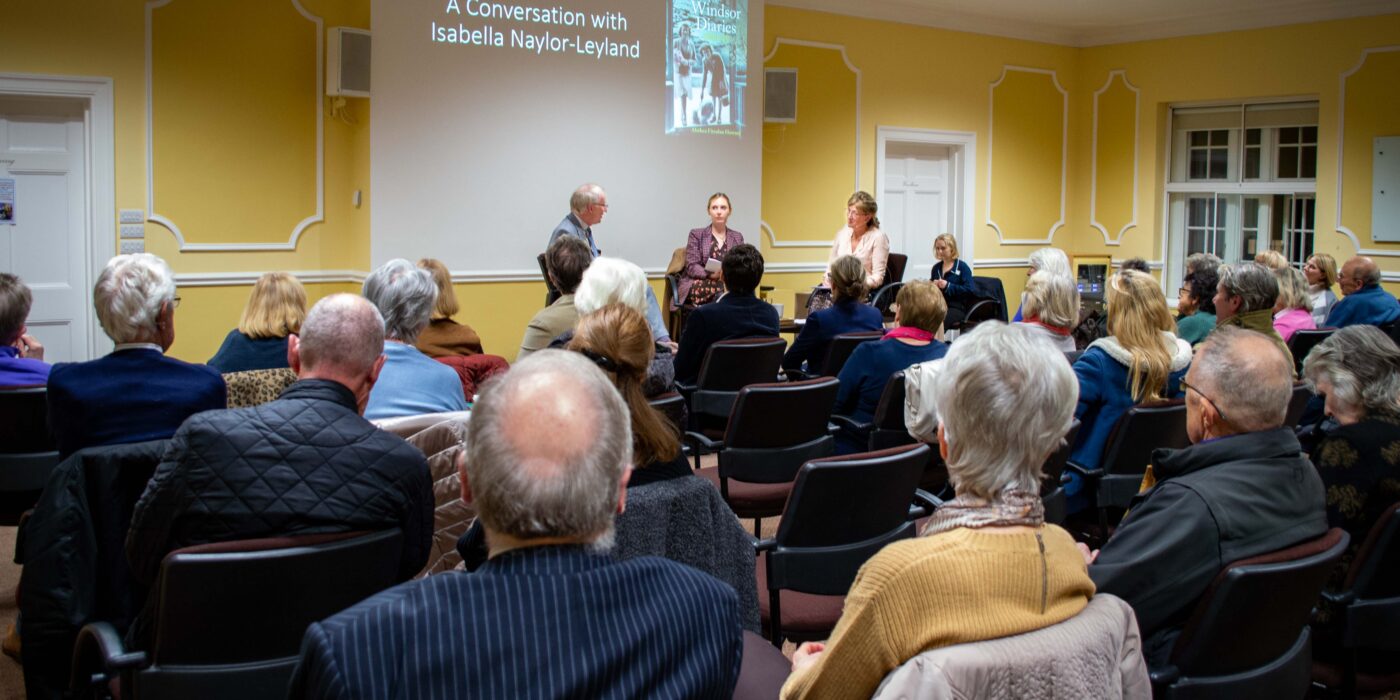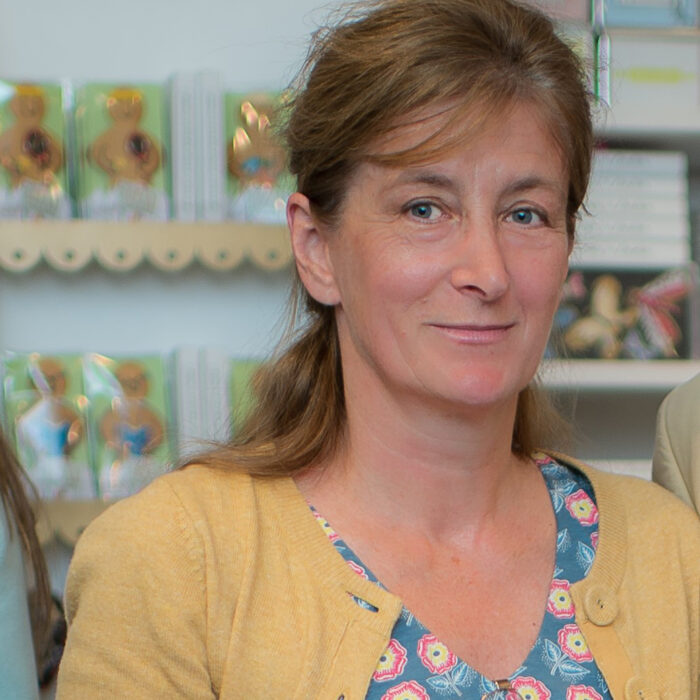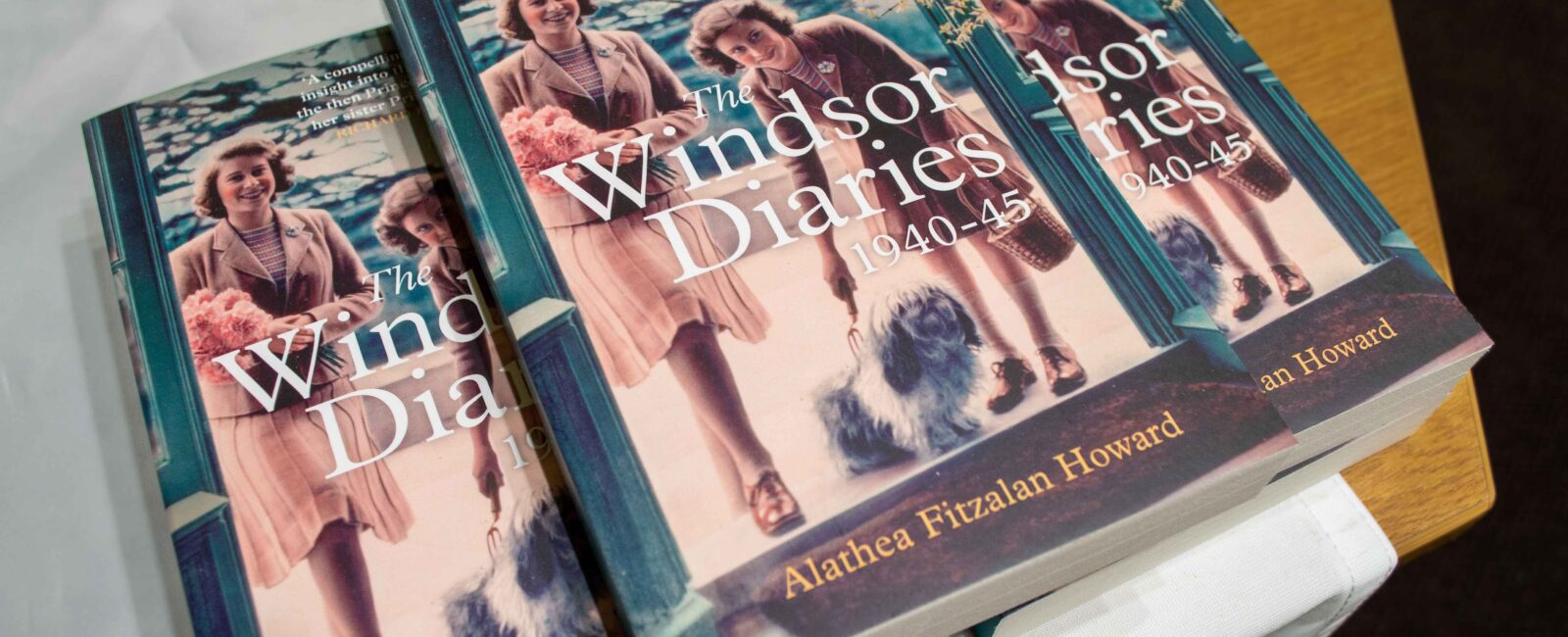Alathea Fitzalan Howard has a special and unique connection with Cumberland Lodge. It was her home during the Second World War; the place in which she built memories with the then King, Queen and young Princesses, Elizabeth and Margaret, and a time during which she kept meticulous diary accounts of her experiences.
On 24 November 2021, coincidentally on what would have been Alathea’s 98th birthday, Cumberland Lodge welcomed Isabella Naylor-Leyland, curator of The Windsor Diaries and wife of Alathea’s nephew, to share insights about Alathea’s life and her experiences of living in the Great Park. There were many reasons to celebrate, as this Conversation was also the first in two years to welcome both online participants and an in-person audience at the Lodge. Isabella spoke to the Chief Executive of Cumberland Lodge, Dr Ed Newell, and was joined on stage by her daughter-in-law, Florence Houston, who brought Alathea’s old haunts to life in an illustrated map in the recently published book. Florence also voiced young Alathea’s diary entries throughout the conversation.
It was always Alathea’s hope that her diaries, which span from New Year’s Eve 1939 to January 2001, would be shared and spoken about to explore a time of uncertainty and change in Britain. As Isabella describes, Alathea hoped the diaries to be ‘a portrait of an age no longer existing’. Alathea passed away in 2001 but entrusted a very touched and surprised Isabella with her 64 diaries. Through candid writing about her experiences of the War, balls, parties, pantomimes, lessons with her governess, and time spent with the Royals, Alathea’s world came to life in Isabella’s hands. As such, Isabella adapted the 1940-1945 diaries for publication. In this conversation, we explored wartime Britain, life at the Lodge and friendship through the musings of a young woman’s pen.
Living through War at Cumberland Lodge
Alathea spent much of her childhood in London. However, as the War began, she was sent to Cumberland Lodge to live with her paternal uncle, Lord Fitzalan of Derwent, and maiden Aunt Magdalen. Isabella shared that in Alathea’s teenage eyes, the old-fashioned and strictly Catholic Lodge was not a happy place to grow up. Her mother hardly visited, she saw her father infrequently on weekends and was distant from the younger sister she adored. During this time, Alathea’s diary became her constant companion, and through her daily entries, we can understand that despite the relative safety of the Great Park, the War was really never very far away.
A Royal friendship
There was, however, one great solace for Alathea during this turbulent time: her friendship with Princesses Elizabeth and Margaret, who had also left London for the safety of the Great Park. Racing up and down the Long Walk to Windsor Castle on her bicycle, Alathea spent much time with the Royal Family. It is through Alathea’s entries about staying overnight with the Princesses, playing cards (amongst many other games) with the Queen, and feeling at ease whilst sitting next to the King at lunch, that we learn Alathea’s stories are ones of friendship, kindness and glimpses of stability during what was otherwise an uncertain time. Isabella shared with the audience that although clearly devoted to her Royal friends, Alathea was not averse to straight-talking, for instance describing the young Prince Philip as “not my type”. The diaries provide rare and honest insight into the mindset of a teenager who is terrified by the dropping of bombs and hiding in the Lodge’s underground air-raid shelter, but equally preoccupied with her teenage crush and Princess Elizabeth’s secret that she cuts out photographs of “her boy”, Prince Philip, from newspapers.

After the War
At the end of the War, the Princesses and Alathea returned to London, but the diaries never stopped. Isabella exaplained that they tell of Alathea’s time abroad, her French, German, Spanish and Russian linguistic prowess, as well as the trials and tribulations of marriage and widowhood. Alathea and Elizabeth’s friendship lasted a lifetime and, when asked by an audience member how she chose which bits of the diaries to leave in and remove from publication, Isabella explained that it was only really private conversations, such as the political musings of two young girls, that were excluded out of respect for this friendship.
The conversation with Isabella and The Windsor Diaries gave us much to think about. Recently, we have all been ‘locked-in’ as a result of the pandemic, relying on friendships, kindness of others and hoping for glimpses of stability in a way we never imagined. Alathea’s diaries give us a timely reminder to remain connected and extend warmth to those around us.
I would thoroughly recommend delving into The Windsor Diaries to find out more about the fascinating adventures, challenges and triumphs of Alathea and the young Princesses.


